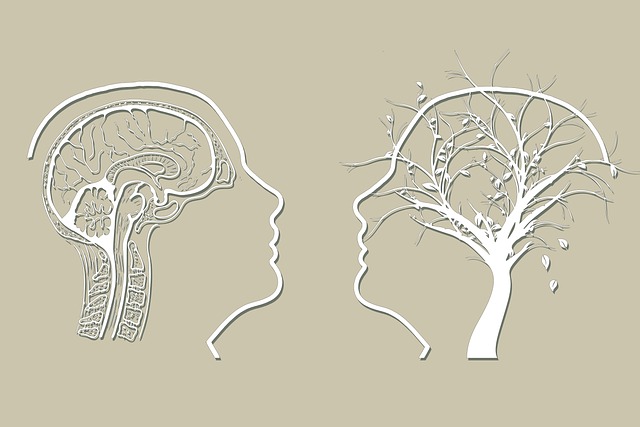Incorporating American Sign Language (ASL) into adult therapy crisis intervention significantly improves accessibility and outcomes, especially for deaf or hard-of-hearing individuals. This approach breaks language barriers, enables effective communication during crises, and promotes equal participation in mental health discussions. By using ASL, therapists can create safe spaces, understand patient barriers better, offer reassurance, and provide tailored guidance or referrals. Post-crisis care that includes ASL therapy facilitates trauma healing, builds resilience, and teaches coping strategies, aligning with Mind Over Matter principles. Public awareness campaigns further normalize help-seeking behaviors, ensuring accessible communication approaches for all adults facing emotional distress.
In times of crisis, effective intervention strategies are vital for fostering resilience and recovery. This article guides you through essential aspects of crisis support, offering a comprehensive toolkit for professionals and caregivers. We explore the role of therapy in adult mental health crises, delving into the benefits of American Sign Language (ASL) as a powerful communication tool. Additionally, we provide practical tips on active listening and empathy, ensuring a supportive environment. Learn about post-crisis care and rehabilitation techniques to help individuals rebuild their lives.
- Understanding Crisis Intervention: A Brief Overview
- The Role of Therapy in Adult Mental Health Crises
- American Sign Language (ASL) as a Tool for Effective Communication During Crises
- Strategies for Providing Supportive Listening and Empathy
- Post-Crisis Care and Rehabilitation: Nurturing Resilience
Understanding Crisis Intervention: A Brief Overview

Crisis intervention is a critical aspect of mental healthcare, focusing on providing immediate support and guidance during times of intense emotional distress or traumatic events. It involves a set of strategies aimed at stabilizing individuals, helping them cope with overwhelming situations, and preventing further deterioration. In the context of therapy for adults, especially when considering cultural sensitivity in mental healthcare practice, American Sign Language (ASL) can be a valuable tool. ASL not only enhances communication accessibility but also offers a unique way to convey emotional support and practical guidance during crises.
The process often involves assessing the individual’s situation, providing reassurance, and offering concrete solutions or referrals to specialized services. A confident and culturally competent healthcare provider equipped with relevant training in mental health crisis intervention can significantly impact the outcome. This includes understanding cultural nuances, biases, and barriers to care, ensuring a safe and inclusive environment for all patients, and boosting their confidence during challenging times.
The Role of Therapy in Adult Mental Health Crises

In the context of adult mental health crises, therapy plays a pivotal role in providing much-needed support and guidance. For individuals facing severe emotional distress, trained therapists offer a safe space to process and understand their experiences. Therapy for adults is not just about treating specific disorders; it equips them with essential coping skills development and stress management techniques tailored to their unique challenges. American Sign Language (ASL) therapy has also emerged as a valuable tool, ensuring that the communication needs of deaf or hard-of-hearing individuals are met during crisis intervention.
Beyond direct therapy sessions, public awareness campaigns focused on mental health can significantly contribute to early identification and intervention. By fostering open discussions and educating communities about recognizing signs of distress, these initiatives empower folks to seek help promptly. This proactive approach complements therapy by promoting a culture where seeking support is normalized, leading to better outcomes for adults navigating mental health crises.
American Sign Language (ASL) as a Tool for Effective Communication During Crises

In times of crisis, effective communication is paramount to ensuring swift and accurate support. American Sign Language (ASL) serves as a powerful tool that facilitates meaningful dialogue between professionals and individuals who are deaf or hard of hearing. Beyond breaking down language barriers, ASL offers a non-verbal means of expression, which can be especially beneficial during traumatic situations where words might not adequately convey emotions or needs. This visual language allows for immediate and precise conveying of messages, such as conveying panic, pain, or specific requests for aid—aspects crucial in crisis intervention strategies.
Incorporating ASL into crisis intervention services enhances the accessibility of therapy for adults with hearing impairments. It promotes equal participation in mental health awareness discussions and facilitates inner strength development through clear communication channels. Moreover, learning basic ASL signs can empower bystanders to provide initial support until professional help arrives, contributing to effective mood management strategies in crisis scenarios.
Strategies for Providing Supportive Listening and Empathy

Effective crisis intervention often hinges on a foundational skill: active listening. When assisting individuals during moments of distress, professionals must create a safe and non-judgmental space for clients to express their thoughts and emotions freely. This involves not just hearing but thoroughly comprehending and acknowledging their experiences. One powerful tool in achieving this is American Sign Language (ASL), which can facilitate communication for deaf or hard-of-hearing individuals, ensuring they receive the same level of support as their hearing peers.
Empathy, a cornerstone of therapeutic practices, is crucial for building rapport and fostering understanding. Professionals should aim to validate the individual’s feelings without making assumptions or offering quick solutions. By demonstrating genuine care and interest, they encourage clients to open up about their challenges, which can be particularly beneficial in preventing burnout and promoting recovery. This empathetic approach is also integral to social skills training, helping individuals develop healthier coping mechanisms and improve relationships. Moreover, it plays a significant role in depression prevention by fostering a sense of belonging and understanding, crucial elements in mental health maintenance.
Post-Crisis Care and Rehabilitation: Nurturing Resilience

Post-crisis care is a vital step in the process of healing and rehabilitation. For individuals who have experienced trauma, providing ongoing support through therapy for adults, particularly incorporating American Sign Language (ASL), can be transformative. ASL offers a unique means of communication that allows those with hearing impairments to express themselves freely, fostering inclusivity within trauma support services.
This approach leverages the Mind Over Matter principles, emphasizing the power of mental wellness. Through dedicated therapy sessions, individuals cultivate resilience and learn coping mechanisms tailored to their experiences. The Mental Wellness Podcast Series Production can also play a significant role in this process by offering accessible resources that educate and inspire listeners on their journey towards recovery.
In conclusion, effective crisis intervention requires a multifaceted approach that combines therapy tailored to adult mental health crises, innovative communication tools like American Sign Language (ASL), and supportive listening strategies. By integrating these elements, we can enhance care, foster resilience, and ensure positive outcomes for individuals facing challenging situations. The guidance provided in this article offers practical insights into navigating crisis intervention, ultimately contributing to a more comprehensive and compassionate support system.














